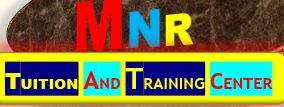Course Title: PHP Programming
Course Overview: This course introduces students to the PHP programming language, covering fundamental concepts, web development techniques, database integration, and application deployment. Students will learn about PHP syntax, data types, control structures, functions, classes, and interactions with web servers and databases.
Course Duration: 12 weeks (3 hours per week)
Module 1: Introduction to PHP
- History and overview of the PHP programming language
- Setting up a PHP development environment (web server, PHP interpreter)
- Writing and running simple PHP scripts
- Basic syntax and structure of PHP programs
- Embedding PHP code in HTML pages
Module 2: Variables, Data Types, and Operators
- Introduction to variables and data types in PHP
- Basic arithmetic and logical operators
- Working with integers, floats, strings, booleans, and arrays
- Type conversion and type casting
- Understanding scope and variable visibility
Module 3: Control Flow and Decision Making
- Conditional statements (if-else, switch-case)
- Nested conditional statements
- Loops (while, do-while, for, foreach)
- Loop control statements (break, continue)
- Using the ternary operator for concise conditional expressions
Module 4: Functions and Parameter Passing
- Defining and calling functions in PHP
- Function arguments (pass by value, pass by reference, default arguments)
- Returning values from functions
- Variable scope (global vs. local variables)
- Anonymous functions (closures) and lambda functions
Module 5: Arrays and Strings
- Introduction to arrays and associative arrays in PHP
- Array operations (sorting, searching, manipulation)
- Working with multidimensional arrays
- String manipulation functions and operations
- Regular expressions for pattern matching and string validation
Module 6: Working with Forms and Handling User Input
- Overview of HTML forms and form elements
- Handling form submissions with PHP
- Validating user input and sanitizing input data
- Uploading files using HTML forms and processing file uploads with PHP
- Working with form data (GET and POST methods)
Module 7: Sessions and Cookies
- Understanding sessions and cookies in web development
- Using sessions for user authentication and tracking
- Storing and retrieving session data in PHP
- Setting and accessing cookies in PHP
- Implementing persistent login functionality using sessions and cookies
Module 8: Database Integration with MySQL
- Introduction to MySQL database management system
- Connecting to MySQL database from PHP
- Executing SQL queries using PHP
- Retrieving and displaying data from MySQL database
- Performing database operations (insert, update, delete) using PHP
Module 9: Object-Oriented Programming (OOP) in PHP
- Introduction to object-oriented programming concepts in PHP
- Defining classes and objects in PHP
- Class inheritance and method overriding
- Access specifiers (public, private, protected)
- Using interfaces and abstract classes in PHP
Module 10: Working with Files and Directories
- File system operations using PHP (file handling, directory manipulation)
- Reading from and writing to files in PHP
- File permissions and access control
- File uploading and downloading using PHP
- File and directory manipulation functions in PHP
Module 11: Error Handling and Exception
- Understanding errors and exceptions in PHP
- Error reporting and debugging techniques
- Handling errors and exceptions using try-catch blocks
- Custom exception handling and error logging
- Best practices for error handling in PHP applications
Module 12: Introduction to Web Development Frameworks
- Overview of PHP frameworks (e.g., Laravel, Symfony, CodeIgniter)
- Introduction to MVC (Model-View-Controller) architecture
- Setting up and configuring a PHP framework project
- Routing and request handling in PHP frameworks
- Using ORM (Object-Relational Mapping) for database interaction
Module 13: Web Services and APIs
- Introduction to web services and APIs
- Consuming RESTful APIs in PHP applications
- Making HTTP requests using cURL and Guzzle HTTP client
- Handling JSON and XML responses in PHP
- Building and exposing web APIs using PHP
Module 14: Security Best Practices
- Understanding common security threats and vulnerabilities in web applications
- Implementing secure authentication and authorization mechanisms
- Preventing SQL injection, cross-site scripting (XSS), and cross-site request forgery (CSRF)
- Data validation and sanitization techniques
- Secure coding practices and guidelines
Module 15: Deployment and Hosting
- Deploying PHP applications to web servers (e.g., Apache, Nginx)
- Configuring PHP settings and environment variables
- Domain management and DNS configuration
- Choosing a hosting provider and setting up web hosting
- Monitoring and maintaining PHP applications in production
Module 16: Capstone Project
- Students will work on a capstone project to apply the skills learned throughout the course
- Project topics may include building a web application, implementing specific features, or solving real-world problems using PHP
Assessment:
- Assignments and projects after each module
- Mid-term and final exams covering the entire syllabus
- Evaluation of the capstone project
Prerequisites:
- Basic understanding of HTML, CSS, and JavaScript
- Familiarity with any programming language is helpful but not required
